Israeli human rights organisation B’Tselem drew attention on October 10 to plans by the Israeli government to expel 27,000 Bedouin Palestinians living in what is known as “Area C” of the occupied West Bank.
Israel's Civil Administration is planning to expel the Bedouin communities living in Area C. In the first phase is planned for January. About 20 communities, involving 2300 people, will be forcibly transferred to a site near the Abu Dis rubbish dump, east of Jerusalem.
-
-
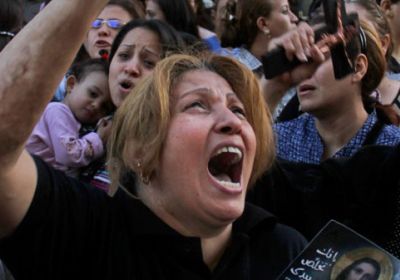 Walking around downtown Cairo on October 10, everything felt relatively normal ― if, perhaps, a little more tense than usual for post-January 25 Cairo. That is, until I came across the wrecks of burnt out cars on the Corniche el Nil in Maspero, just north of Tahrir Square, being pulled apart by enterprising young men.
Walking around downtown Cairo on October 10, everything felt relatively normal ― if, perhaps, a little more tense than usual for post-January 25 Cairo. That is, until I came across the wrecks of burnt out cars on the Corniche el Nil in Maspero, just north of Tahrir Square, being pulled apart by enterprising young men. -
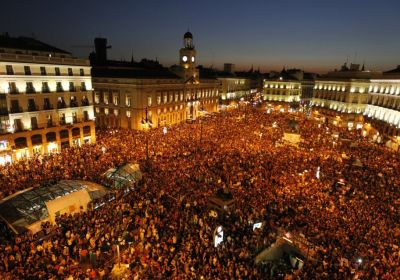
On October 15, protests and occupations as part of a "United for Global Change" day of action initiated by the Spanish Indignant movement took place in more than 1000 cities in dozens of nations around the world.
-
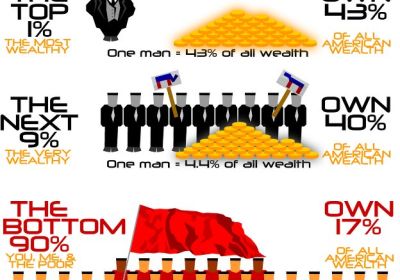
This article from a participant of the Occupy Wall Street movement, Pham Binh, was written on October 13. The movement has spread around the United States and internationally.
-
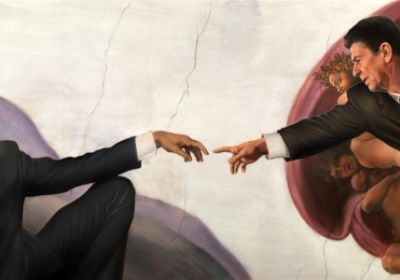 There is a sharp reality disconnect in the Black community. On the one hand, the Black population continues to support the first African American president, Barack Obama, by more than 90%. Yet the plight of the Black communities is at its worst condition in three decades. Official unemployment is over 16% ― twice that of whites and iabout 30% for young African Americans. Black household income is in decline and the lowest of the five major ethnic groups. Poverty is at the highest levels in 30 years.
There is a sharp reality disconnect in the Black community. On the one hand, the Black population continues to support the first African American president, Barack Obama, by more than 90%. Yet the plight of the Black communities is at its worst condition in three decades. Official unemployment is over 16% ― twice that of whites and iabout 30% for young African Americans. Black household income is in decline and the lowest of the five major ethnic groups. Poverty is at the highest levels in 30 years. -
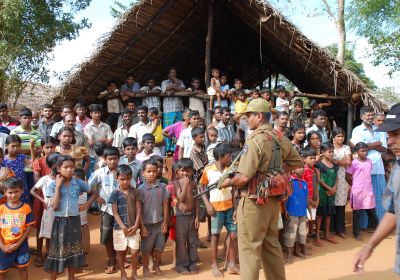 “We Tamils, inside and outside the island of Sri Lanka, still want an independent state,” Visuvanathan Rudrakumaran, prime minister of the Transnational Government of Tamil Eelam (TGTE), told me recently in New York. “And because the war crimes and severe brutality of the Mahinda Rajapaksa government against our people have become well known, our cause is being spoken about all over the world.”
“We Tamils, inside and outside the island of Sri Lanka, still want an independent state,” Visuvanathan Rudrakumaran, prime minister of the Transnational Government of Tamil Eelam (TGTE), told me recently in New York. “And because the war crimes and severe brutality of the Mahinda Rajapaksa government against our people have become well known, our cause is being spoken about all over the world.” -
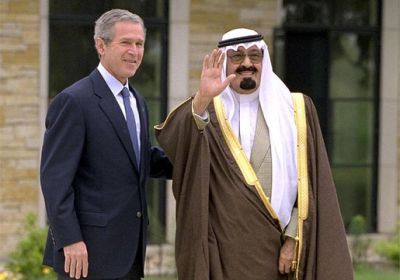 A secret cable sent from the US Embassy in Riyadh, Saudi Arabia, in 1996, released by WikiLeaks, provides an in-depth account of the processes of wealth distribution and waste within the ruling House of Saud. The cable noted: “Royals still seem more adept at squandering than accumulating wealth.” It said corruption abounded largely unchecked. It was the view of the US embassy in Saudi Arabia that getting a grip on royal family excess was at the top of pressing concerns for the oil-rich US ally.
A secret cable sent from the US Embassy in Riyadh, Saudi Arabia, in 1996, released by WikiLeaks, provides an in-depth account of the processes of wealth distribution and waste within the ruling House of Saud. The cable noted: “Royals still seem more adept at squandering than accumulating wealth.” It said corruption abounded largely unchecked. It was the view of the US embassy in Saudi Arabia that getting a grip on royal family excess was at the top of pressing concerns for the oil-rich US ally. -
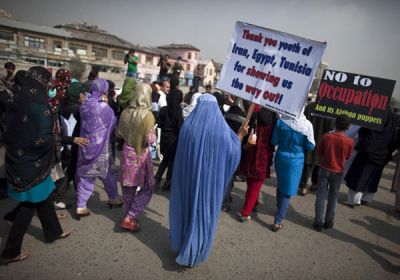
Crowds burned a US flag in Kabul on October 6 at a rally to mark the 10th anniversary the next day of the US-led invasion and occupation of Afghanistan.
-
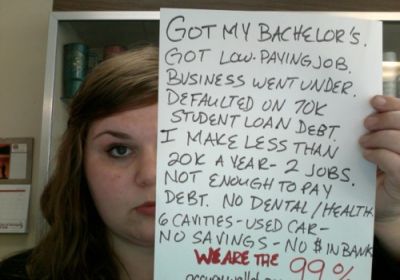 A blog of those that support the Occupy Wall Street protests, that began in New York in September and have since spread to hundreds of US cities, hosts a series of personal testimonies from ordinary people across the United States. It indicates the source of the deep anger at the corporate elite that have become rich off their suffering. A selection are published below. * * *
A blog of those that support the Occupy Wall Street protests, that began in New York in September and have since spread to hundreds of US cities, hosts a series of personal testimonies from ordinary people across the United States. It indicates the source of the deep anger at the corporate elite that have become rich off their suffering. A selection are published below. * * * -
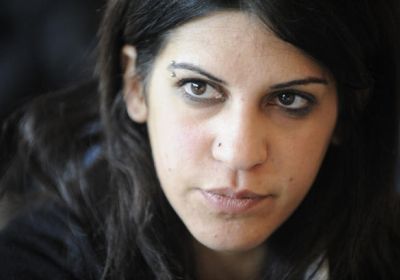 Lina Ben Mhenni, 27, is a Tunisian blogger and activist for freedom of speech, women’s rights and student rights. Her blog, A Tunisian Girl, was censored under Zine el Abidine Ben Ali’s regime. During the early days of the uprising against Ben Ali that started on December 17 last year, she travelled to the rural Tunisian cities of Sidi Bouzid, Regueb and Kasserine to document police repression and catalysing protests throughout the country.
Lina Ben Mhenni, 27, is a Tunisian blogger and activist for freedom of speech, women’s rights and student rights. Her blog, A Tunisian Girl, was censored under Zine el Abidine Ben Ali’s regime. During the early days of the uprising against Ben Ali that started on December 17 last year, she travelled to the rural Tunisian cities of Sidi Bouzid, Regueb and Kasserine to document police repression and catalysing protests throughout the country. -
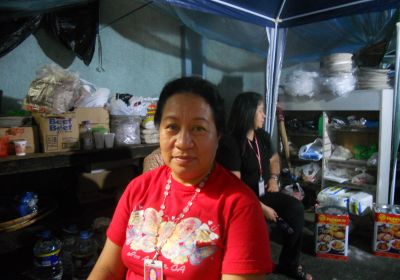 Members of the Philippines Air Lines Employees Association (PALEA) have been engaged in three weeks of pickets at the Philippines Airlines (PAL) terminal at Ninoy Aquino International Airport in Manila. About 2600 ground crew have fought against forced contractualisation — the replacement of permanent, secure jobs with contract labour. PALEA president Gerry Rivera told Green Left Weekly the dispute had its origins in 2009 when PAL management declared their intention to outsource the roles of the 2600 ground crew.
Members of the Philippines Air Lines Employees Association (PALEA) have been engaged in three weeks of pickets at the Philippines Airlines (PAL) terminal at Ninoy Aquino International Airport in Manila. About 2600 ground crew have fought against forced contractualisation — the replacement of permanent, secure jobs with contract labour. PALEA president Gerry Rivera told Green Left Weekly the dispute had its origins in 2009 when PAL management declared their intention to outsource the roles of the 2600 ground crew. -
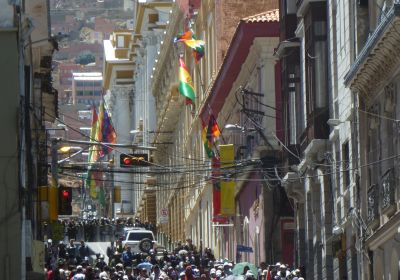 September 25 will go down as one of the darkest days in Bolivia since Evo Morales was elected as the country’s first indigenous president almost six years ago. After more than 40 days of indigenous protesters marching, police officers moved in to repress those opposed to the government’s proposed highway that would run through the Isiboro-Secure National Park and Indigenous Territory (TIPNIS). The controversial highway has met with both opposition and support from the many indigenous and social organisations that form the Morales government’s support base.
September 25 will go down as one of the darkest days in Bolivia since Evo Morales was elected as the country’s first indigenous president almost six years ago. After more than 40 days of indigenous protesters marching, police officers moved in to repress those opposed to the government’s proposed highway that would run through the Isiboro-Secure National Park and Indigenous Territory (TIPNIS). The controversial highway has met with both opposition and support from the many indigenous and social organisations that form the Morales government’s support base.